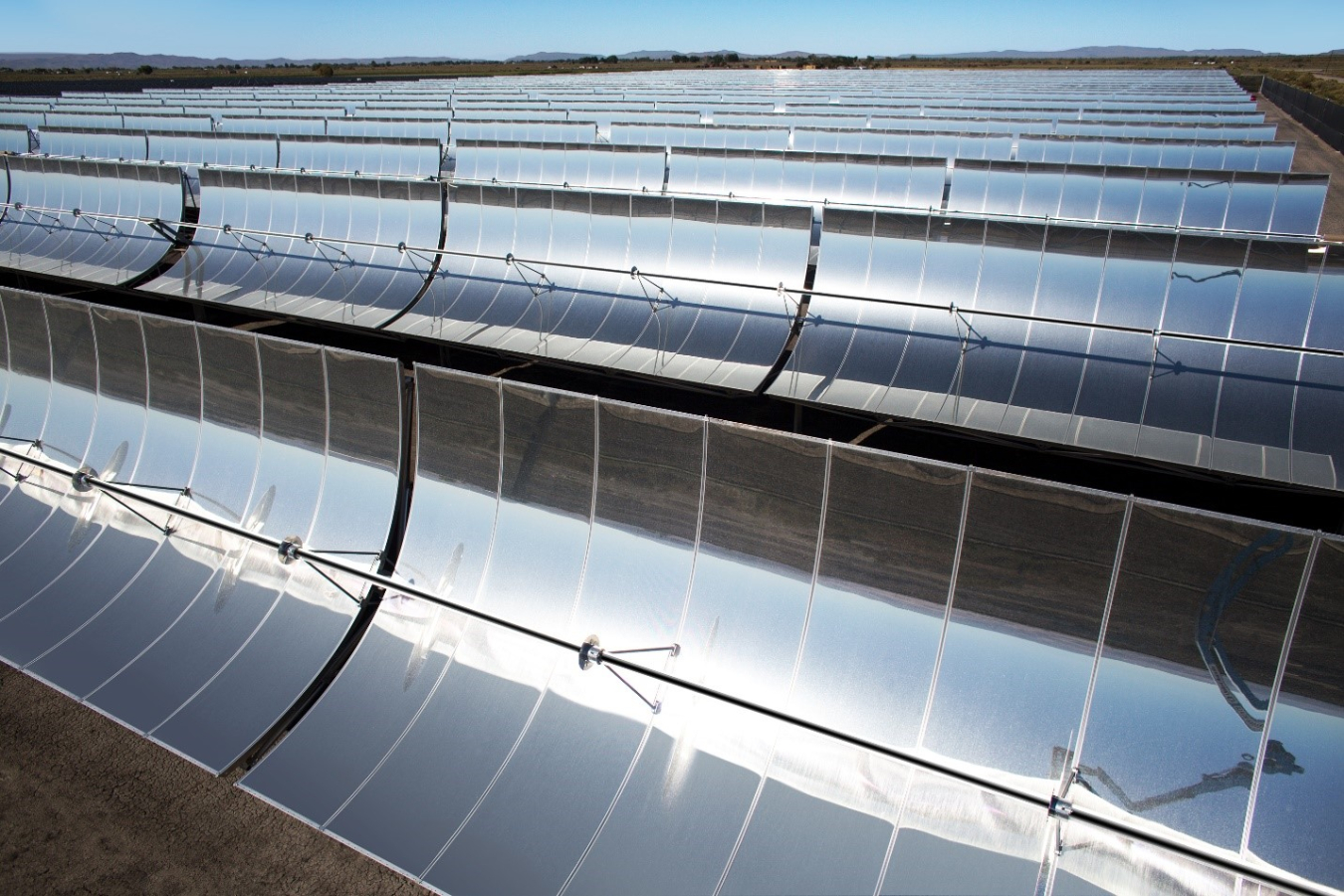Project Name: SkyTrough Vacuum Membrane: An Extreme Low-Cost Solar-Thermal Collector for Desalination
Funding Opportunity: Solar Desalination
SETO Subprogram: Concentrating Solar-Thermal Power
Location: Lakewood, CO
SETO Award Amount: $1,468,984
Awardee Cost Share: $399,690
Principal Investigator: Nate Schuknecht
To reduce the cost of solar-generated heat for desalination applications, this project team will develop a lightweight, low-cost parabolic trough using plastic, flexible composite materials, and a vacuum to maintain structural rigidity. This project aims to create a small-scale prototype containing a heat-transfer-fluid delivery system and a low-temperature thermal-energy storage system that could lead to a pilot installation and further testing at a commercial facility.

APPROACH
SkyFuel will develop an advanced reflective film for parabolic troughs that is more reflective than commercially available films and does not require a metal substrate to support it. The team will place the film on the front surface of a membrane-style parabolic trough using a vacuum to maintain the shape of the collector, which is stretched across a lightweight, flexible structure. Once the team establishes the design and tests the subcomponents, they will create a prototype of the system, and conduct further testing.
INNOVATIONS
This vacuum membrane-style parabolic trough is expected to result in a lighter-weight, less costly desalination system. The low-cost wooden support structure, the low-cost reflective film that captures heat from the sun, and the fact that the film will be placed directly onto the trough and not require special equipment for application will save costs. The film’s ability to improve the collection of solar energy will help the system operate more efficiently and potentially achieve a levelized cost of water of $0.50 per cubic meter.

